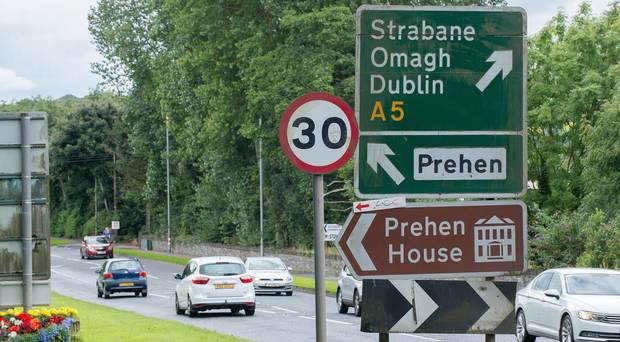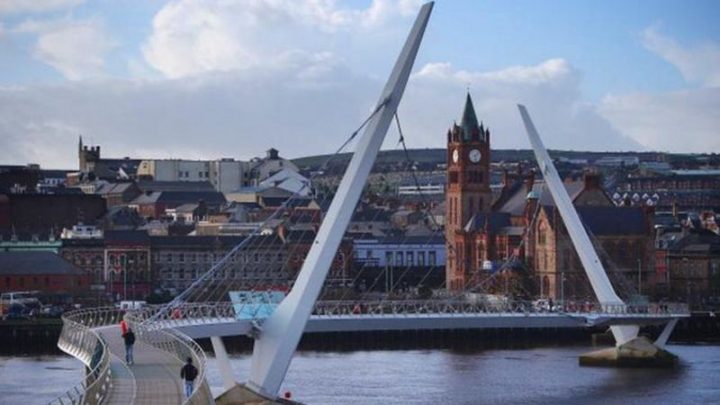 OVER £80m has been spent on the A5 road building project with no tarmac having been laid so far.
OVER £80m has been spent on the A5 road building project with no tarmac having been laid so far.
The project, estimated to cost about £1.2bn, would connect Derry to the border at Aughnacloy and improve access to Dublin.
The long-awaited project was first put forward in 2007 but has been beset by funding issues and legal challenges.
The Department for Infrastructure (DfI) has now estimated that construction should begin by 2023.
The flagship scheme was featured in the New Decade, New Approach deal, which restored power-sharing to the Stormont Executive after three years of deadlock.
Breakdown of £84m costs since 2007 up until May 2021
£53.4m on “consultant fees” paid to engineers taking forward the development of the A5 scheme
£300,000 on legal fees
More than £600,000 on public inquiries
About £30m on contractors, ground investigations, service alterations, archaeology and land cost, together with other costs relating to public consultations.
In 2007, the Irish government said it intended to fund the development of dual carriageway schemes throughout Northern Ireland via a £400m cash injection.
However in 2011, following the financial crisis in the Republic, the government withdrew that funding but said they remained politically committed to the project.
In 2015, following the Fresh Start Agreement, the Irish government said it was ready to provide £75m towards the first phase of the A5.
There have been numerous inquiries and environmental studies, and appeals for and against the road.
The most recent of which was the Planning Appeals Commision (PAC) report published earlier this year.
The interim report by the PAC followed a public inquiry in spring 2020.
It found the scheme did not have an up-to-date assessment of the flood risk along parts of the route, and what was being relied on was “not fit for purpose” and predated significant flooding in the area in recent years.
The PAC said while the new A5 would have an economic benefit and improve road safety, it would also have a climate impact and affect the landscape, the environment and certain communities.
Roads expert Wesley Johnston told BBC Radio Foyle he is not convinced the scheme, in its current form, will ever be completed.
“PAC found that all of the scheme, apart from the Omagh and Strabane bypasses, does not make economic sense anymore because of the cost increases, which is quite a sobering thought,” he said.
“I just think that the scheme is becoming unaffordable.”
It may now be time, he added, for the minister to “take a look at this scheme and have a rethink”.
“There are two arguments for upgrading the road, road safety – an excellent argument, it is a terrible road – and the economic argument.”
 The minister must consider “where can we spend money that’s going to have the most benefit on road safety and the economy”, said Mr Johnston.
The minister must consider “where can we spend money that’s going to have the most benefit on road safety and the economy”, said Mr Johnston.
The DfI confirmed no physical construction of any part of the A5 project had taken place.
A DfI spokesperson said “all major road schemes are generally delivered with the assistance of engineering consultants who can provide the necessary expertise and resources”.
The department has provided an updated timeline for the project, subject to a positive outcome from a reconvened public inquiry scheduled for next year and the final PAC report later in 2022.
They estimated, following the completion of all the necessary statutory procedures and environmental assessments, construction could potentially start in 2023, with full completion of all phases by 2028.
A spokesperson for the Irish government said they were committed to the A5 project as part of the Shared Island initiative.
They said the government was committed to working with the Northern Ireland Executive to achieve greater connectivity on the island.
“The government remains fully committed to providing funding of £75m towards the cost of the first phase of the A5 upgrade scheme, which is subject to the planning assessment and approval process.”
Tags:




